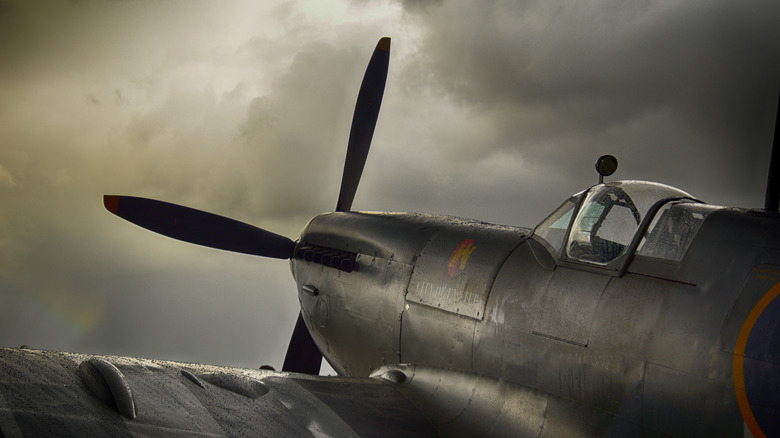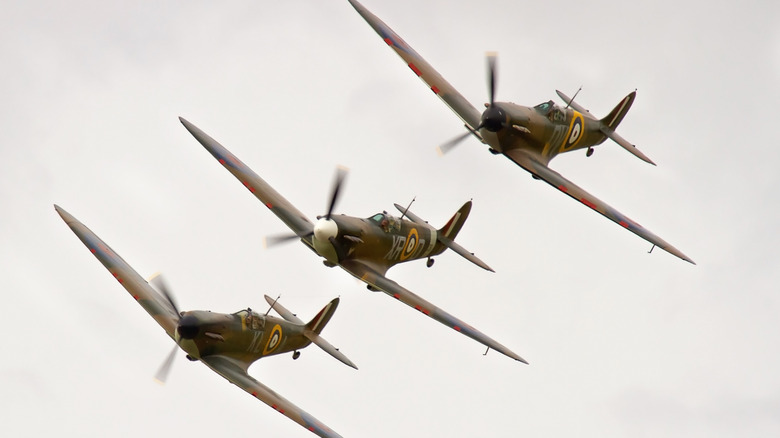The Battle Of Britain Featured One Of The Earliest Uses Of This
It's an unfortunate fact that great technological developments are often spurred by war. For some reason, we humans get real crafty when it comes to killing each other. As Pocket-lint points out, we have militaristic pursuits to thank for everything from digital cameras to drones to GPS, the internet, and duct tape — even silly putty! Our everyday lives have been changed forever due to the contraptions we've cooked up during our bloody conflicts, even long after the treaties have been signed.
In May 1940, as Nazi Germany carried out a devastating blitzkrieg against countries in Western Europe, Britain watched as Belgium, the Netherlands, then France all fell under German control and knew that the Nazi march would continue to its shores. According to Britannica, the German Luftwaffe began its aerial attack of England in July, and the Royal Air Force (RAF) valiantly defended Britain for three months before finally achieving victory in September. The battle was the site of several firsts in both war and technology. It was one of the earliest uses of one particular gadget we now take for granted.
The Battle of Britain was one of the first uses of this weather forecasting tool
The Battle of Britain stands out in history for several reasons. According to History.com, it was almost entirely fought in the sky, rather than on the ground, the first such confrontation in history. England knew that the Luftwaffe was bigger and more powerful than its RAF fleet, so it came up with an ingenious way to defend itself. The Battle of Britain was one of the earliest uses of radar, but the Brits weren't using it to check the weather. Radar had just been invented, and England set up several stations equipped with it on its coastline. The RAF used it to ping Luftwaffe aircraft en route to attack the country, making it possible for British fighters to intercept them and dash any hopes the Nazis had of pulling off surprise attacks.
The technology, however, was still in its early stages, so it wasn't perfect. It was only useful in pinging planes flying at high altitudes, so the RAF still relied on an Observer Corps comprised of vigilant citizens in order to spot low-flying craft. But it was handy enough to give the RAF the advantage in the fight and help Britain fend of the devastating onslaught of the Nazi war machine.

